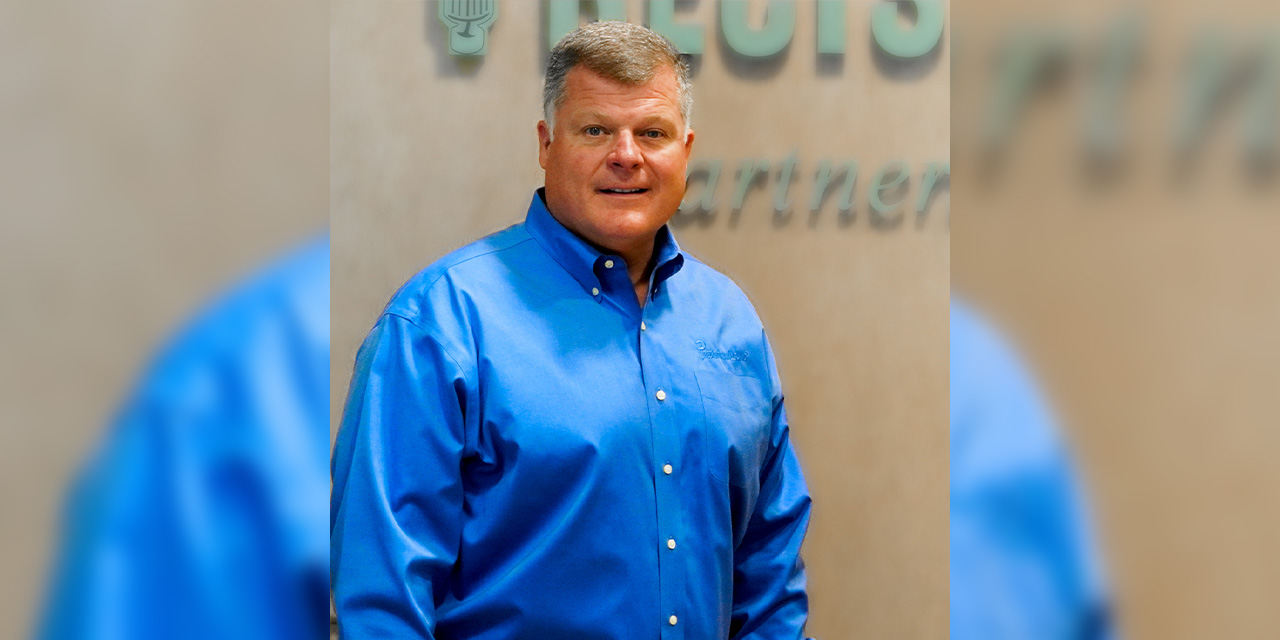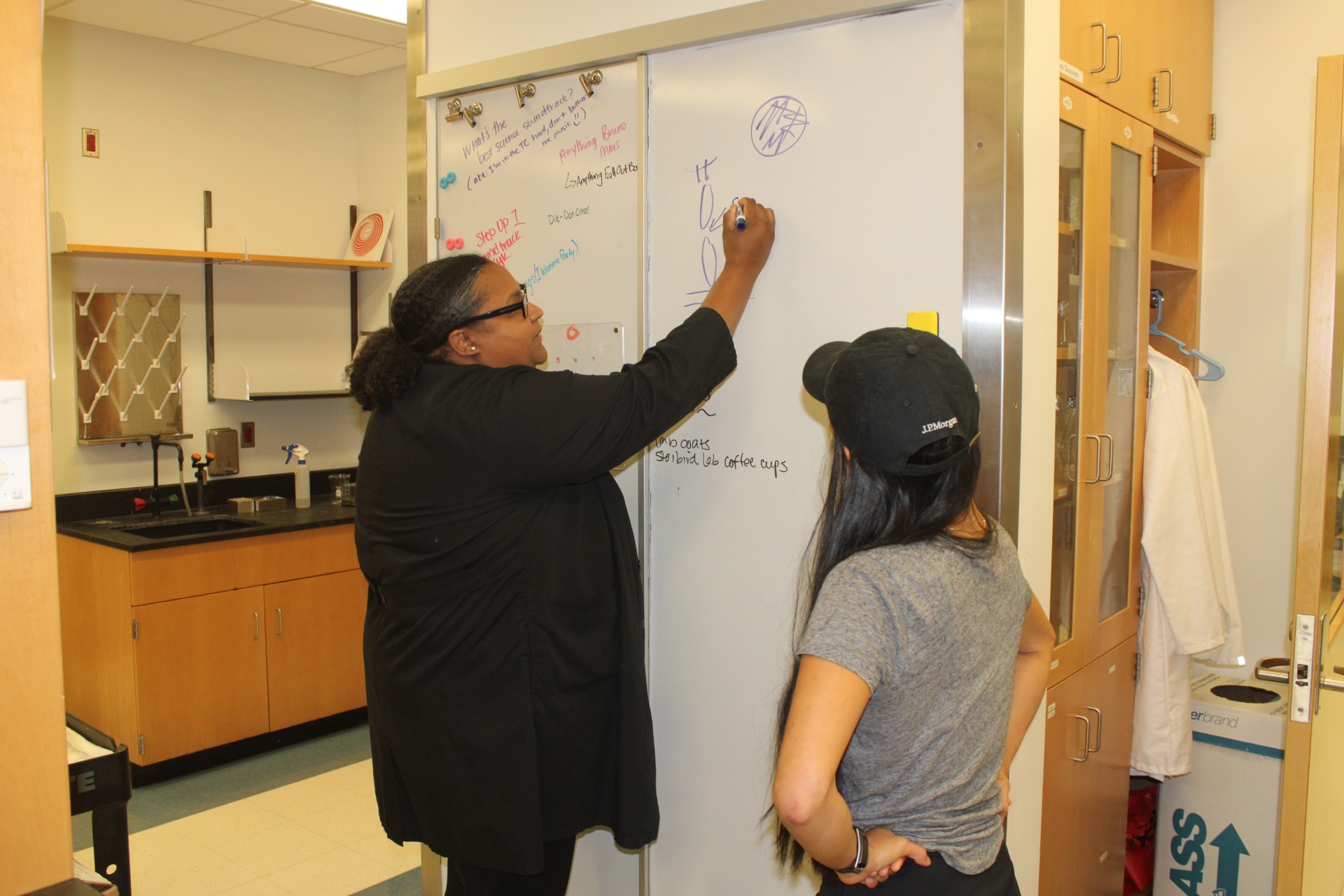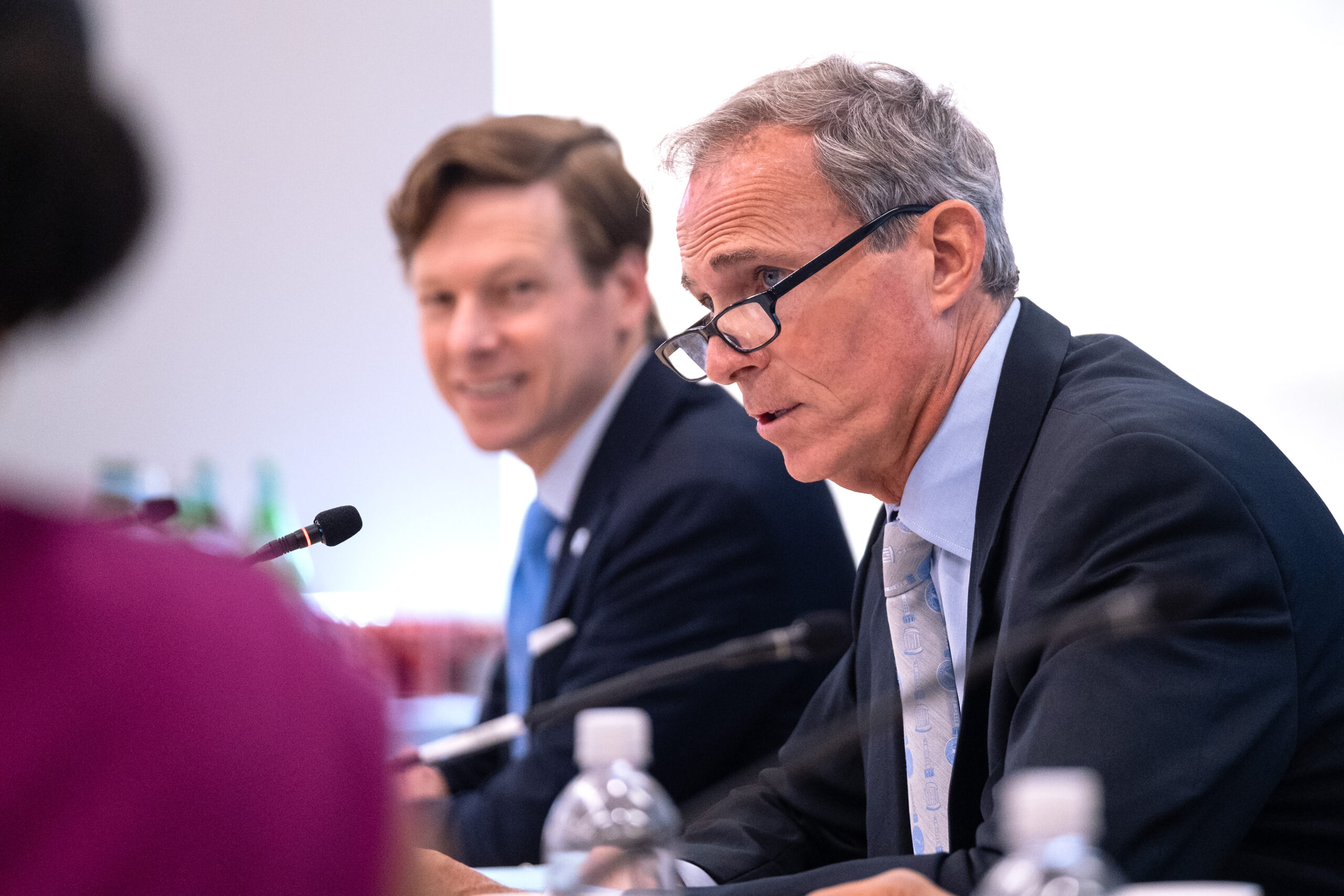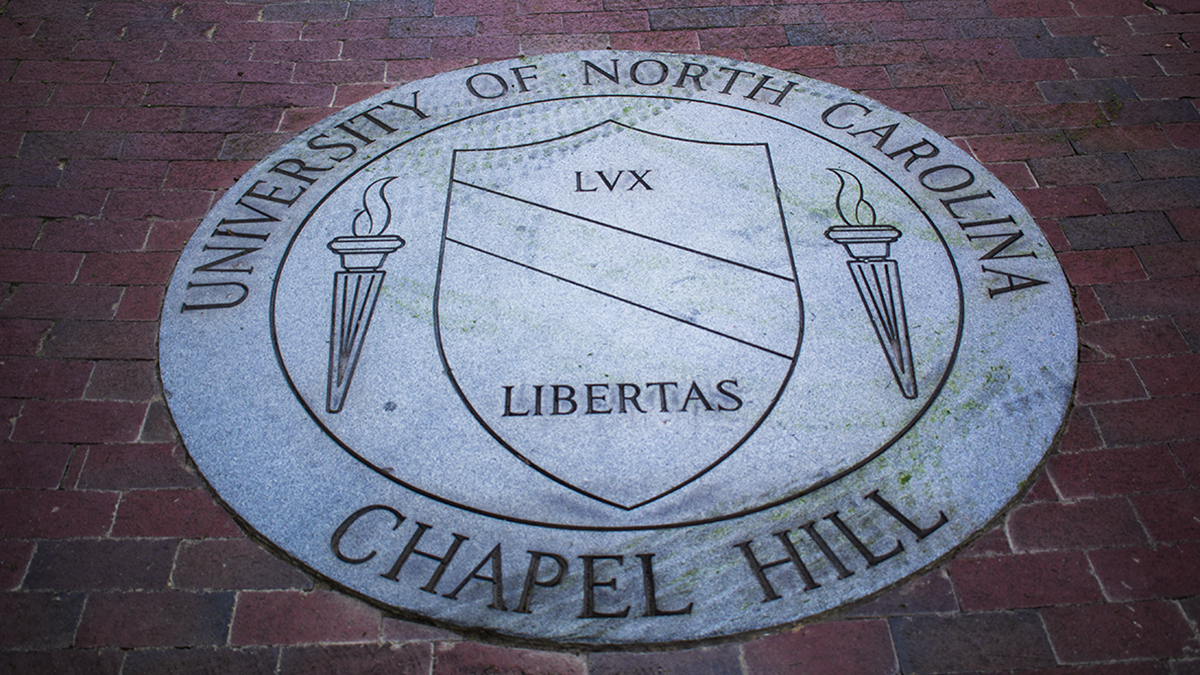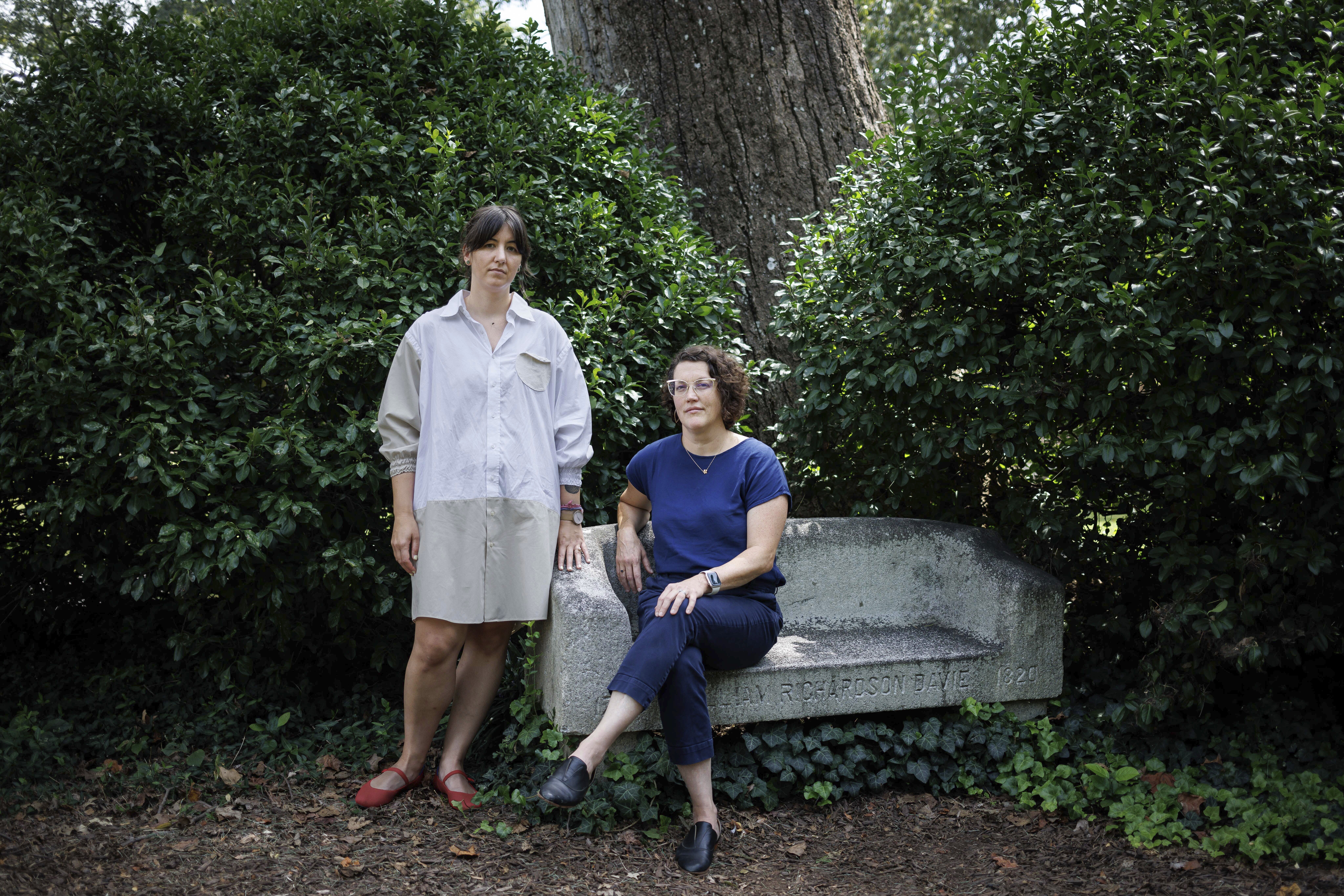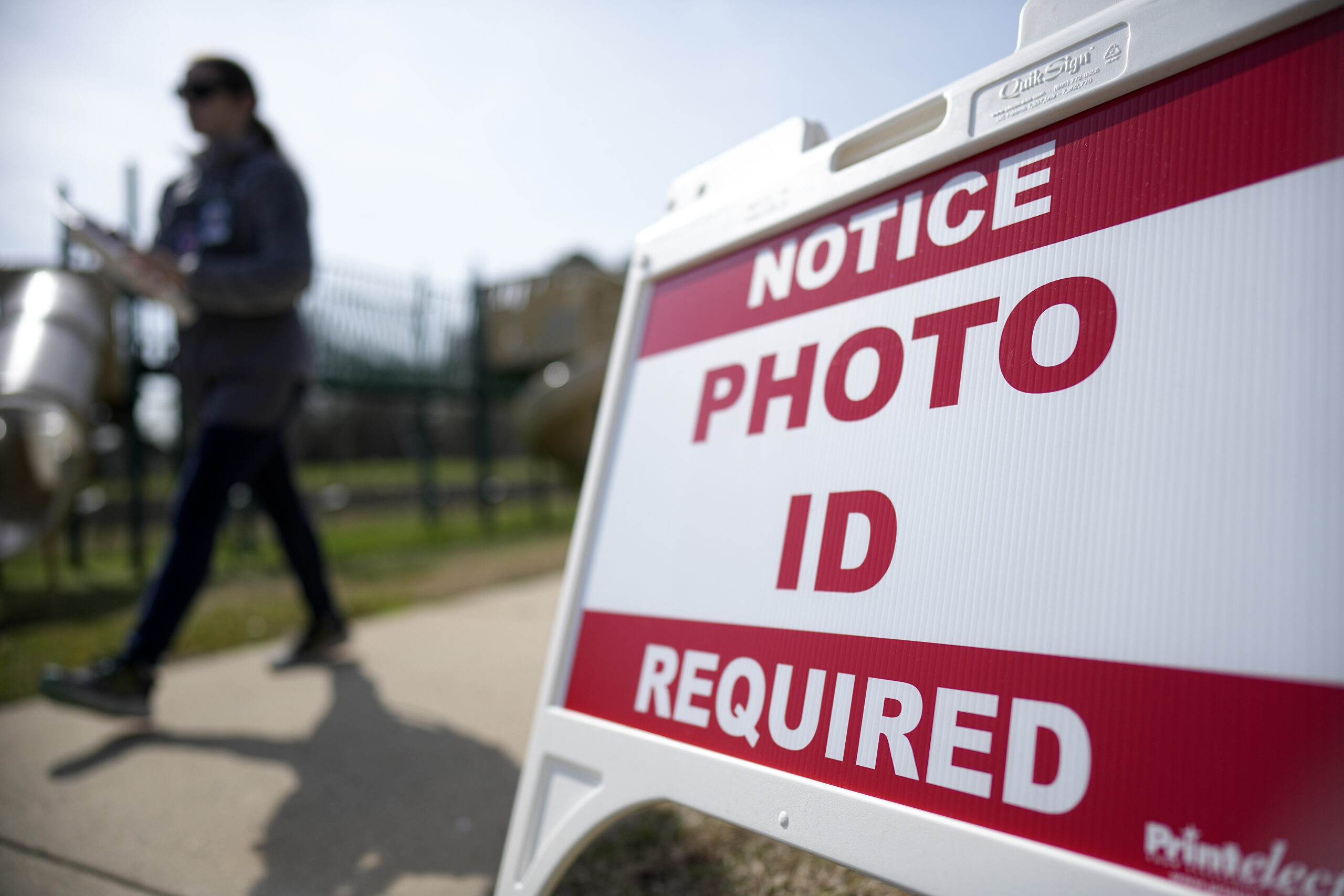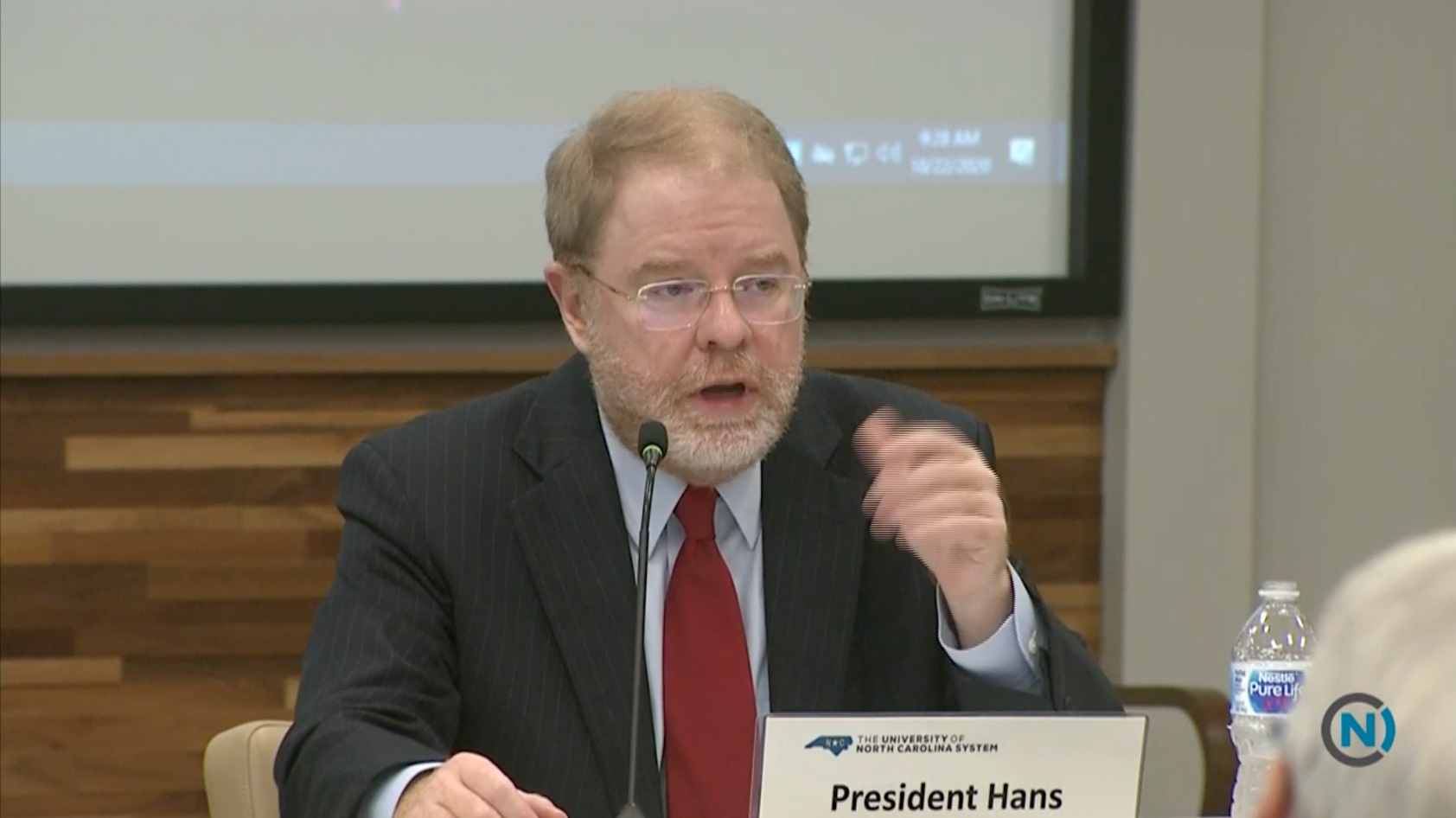A lot has happened around North Carolina since Margaret Spellings was installed as UNC System President on March 1.
Protests were held across the state to mark her first day on the job and those have continued at UNC Board of Governors meetings. And Spellings pushed for those board meetings to be streamed live to increase accessibility and instituted the first public comment sessions in board history.
While Spellings could anticipate protests continuing during the early portion of her tenure, there were some things she could not foresee when taking the job – including North Carolina being thrust into the national spotlight over House Bill 2, which was passed by the General Assembly in late March.
While the legal battle continues over the controversial legislation that requires transgender individuals to use the bathroom and changing facility that matches their birth certificate rather than their gender identity, Spellings has now visited all 17 campuses in the UNC System, traveling 3,877 miles on her “Around the State in 100 Days” tour.
Spellings said in an interview on Monday, “The incredible diversity of the system really stands out, from a world-class – literally world-class – school of the arts to HBCUs to research institutions, healthcare innovators…anything you could possibly think of in your little pea-brain about what might be at issue in our world is really being tackled in these institutions.
“And it’s inspiring.”
Listen to the full interview with Spellings below:
Spellings said she has “loved” meeting with students across the system and that “if you don’t like working with students, this is the wrong business for you.”
Spellings said she has been impressed with how informed and engaged students have been with issues impacting each campus.
“It strikes me how much young people really are in touch with their voice, their views, their opportunities to speak out and be heard by the adults, to be partners, to understand that they own these institutions.”
Some students protested during Spellings’ visit to campuses, saying that she was only meeting with previously selected students and was not getting a full picture of concerns at the university level.
Spellings said the selections of student representatives were made at the university level and acknowledged “I know that’s just the tip of the iceberg and there’s more to do,” while saying she wanted to continue engaging with students, faculty and staff across the system.
One new avenue of engagement has been the institution of public comment sessions at the Board of Governors meetings; the first of which was held on May 30 – the Friday before Memorial Day.
“It really surprised me when I first got here that this entity – a public entity – did not really have a formal process for public and citizen input,” Spellings said.
Spellings added she expects the public input session to “develop” as there are more opportunities and students are back on campus in the fall.
Some protesters have maintained their objection to Spellings being chosen as the System President to replace Tom Ross, to which Spellings said, “And I suspect they’re going to say that for the next, you know, five years.”
Others have voiced specific concerns to the direction of the University System under Spellings’ leadership, specifically, integrating performance-based metrics to evaluate faculty. Spellings said that she welcomes discussion on policy concerns that stakeholders may have through the public comment sessions or reaching out directly to the President.
Spellings added she did sense a common concern when on her system tour.
“What I heard over and over and over is that our students and taxpayers and families and citizens want and expect us to be transparent about price and cost and financial aid and value in life and in the marketplace.
“And I think we owe them that.”

